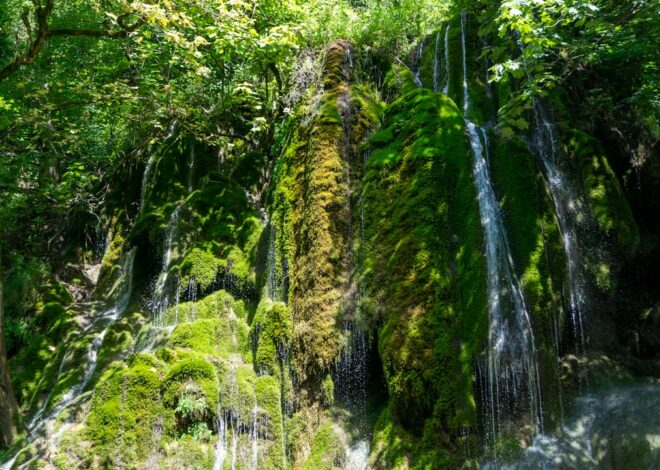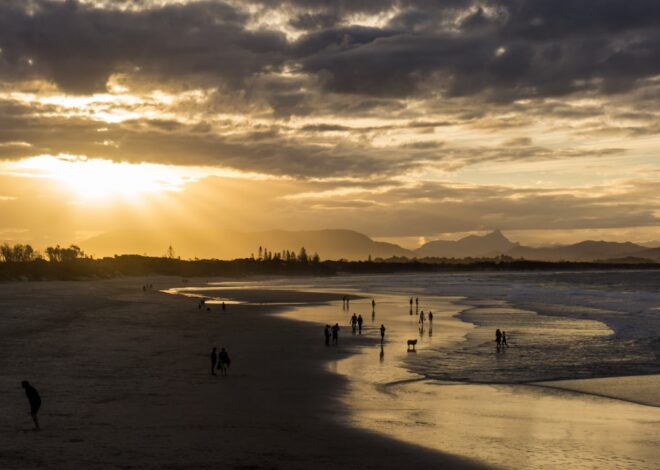
North Korea to Reopen Borders for Tourists
In a significant shift in policy, North Korea has announced its decision to reopen its borders to international tourists after a prolonged period of isolation due to the COVID-19 pandemic. This move marks a pivotal moment for the country, which has long been characterized by its stringent control over foreign visitors and limited engagement with the outside world. The reopening is not merely a response to the pandemic but also reflects a broader strategy to revitalize its economy, which has been severely impacted by years of sanctions and the recent health crisis.
As the world gradually adapts to living with COVID-19, North Korea’s decision signals its intent to re-engage with global tourism, a sector that has historically been tightly regulated. The reopening of borders is expected to attract a new wave of tourists eager to explore one of the most enigmatic countries in the world. North Korea’s unique political landscape, rich history, and distinct culture offer a compelling draw for adventurous travelers.
However, this decision also raises questions about the implications for both tourists and the North Korean regime itself. As the country prepares to welcome visitors once again, it must navigate the delicate balance between showcasing its culture and maintaining its strict control over information and interactions with foreigners.
Key Takeaways
- North Korea has decided to reopen its borders for tourists, allowing for potential cultural exchange and economic opportunities.
- The country’s tourism industry has a history of border closures, with previous instances of restrictions due to political tensions and security concerns.
- The COVID-19 pandemic has significantly impacted North Korea’s tourism, leading to the decision to reopen borders with new guidelines and restrictions in place.
- Tourists visiting North Korea will need to adhere to new guidelines and restrictions, including mandatory quarantine periods and limited interaction with locals.
- The reopening of North Korea’s borders presents opportunities for cultural exchange and interaction with local residents, providing a unique and immersive experience for tourists.
History of North Korea’s tourism industry and previous border closures
North Korea’s tourism industry has a complex history that reflects the country’s political climate and international relations. The government began promoting tourism in the late 1980s as a means to generate foreign currency and showcase its achievements. Initially, the focus was on state-sponsored tours that highlighted the regime’s propaganda, such as visits to monuments dedicated to Kim Il-sung and Kim Jong-il.
Over the years, the country developed a limited but structured tourism framework, primarily targeting visitors from China and a select number of Western nations. However, the tourism sector faced significant challenges, particularly during periods of heightened tensions on the Korean Peninsula. The most notable instance was in 2017 when North Korea’s nuclear tests and subsequent international sanctions led to a sharp decline in tourist arrivals.
The situation worsened with the onset of the COVID-19 pandemic in early 2020, which prompted North Korea to close its borders entirely. This closure not only halted international tourism but also cut off vital sources of income for local businesses that relied on foreign visitors. The impact was profound, as many tour operators and local guides found themselves without work, leading to economic hardships in an already struggling economy.
Impact of COVID-19 on North Korea’s tourism and decision to reopen borders

The COVID-19 pandemic had a dramatic effect on North Korea’s tourism industry, exacerbating existing economic challenges and highlighting the country’s isolationist policies. With borders closed for nearly three years, North Korea faced significant revenue losses from tourism, which had previously been a crucial source of foreign currency. The government implemented strict measures to prevent the virus from entering the country, including suspending all international flights and train services.
This isolation not only affected tourism but also limited access to essential goods and services, further straining the economy. As global vaccination efforts progressed and countries began to reopen their borders, North Korea’s leadership recognized the need to adapt. The decision to reopen borders for tourists is seen as a strategic move to revive an industry that could provide much-needed economic relief.
By welcoming international visitors once again, North Korea aims to stimulate local economies, create jobs, and showcase its cultural heritage. However, this reopening comes with challenges, as the country must ensure that it can manage health risks while maintaining its strict control over foreign interactions.
New guidelines and restrictions for tourists visiting North Korea
| Guidelines and Restrictions | Details |
|---|---|
| Visa Requirement | All tourists must obtain a visa to enter North Korea. |
| Travel Restrictions | Tourists are required to be accompanied by a government-approved tour guide at all times. |
| Prohibited Activities | Tourists are not allowed to interact with locals without permission or take photographs without consent. |
| Restricted Areas | Access to certain areas and sites may be restricted or prohibited for tourists. |
| Health and Safety Guidelines | Tourists are required to follow all health and safety guidelines provided by their tour guides. |
With the reopening of borders, North Korea has established new guidelines and restrictions for tourists aimed at ensuring safety while preserving the regime’s control over information flow. Tourists will likely be required to undergo health screenings upon arrival, including temperature checks and possibly COVID-19 testing. Additionally, travelers may need to provide proof of vaccination or adhere to quarantine protocols depending on their country of origin.
These measures reflect a cautious approach by the North Korean government as it seeks to balance public health concerns with economic recovery. Moreover, tourists will continue to be subject to strict regulations regarding their movements within the country. Guided tours will remain mandatory, with visitors required to stay within designated areas and follow itineraries set by state-approved tour operators.
This level of control is intended not only to ensure safety but also to manage how foreign visitors perceive the country. While some may find this restrictive, it is essential for potential travelers to understand that these regulations are part of North Korea’s broader strategy to maintain its image and prevent any unauthorized interactions with locals.
Opportunities for cultural exchange and interaction with North Korean locals
Despite the restrictions imposed on tourists in North Korea, there are still opportunities for cultural exchange and interaction with locals that can enrich the travel experience. Guided tours often include visits to schools, factories, and cultural performances where tourists can observe daily life in North Korea. These interactions provide a glimpse into the lives of ordinary citizens and offer insights into their customs, traditions, and values.
For many travelers, these experiences can be eye-opening and foster a deeper understanding of a society that is often misunderstood. Additionally, some tour operators have begun incorporating more immersive experiences into their itineraries, allowing tourists to engage with local communities in meaningful ways. For instance, visitors may participate in traditional cooking classes or attend local festivals where they can learn about North Korean culture firsthand.
Such exchanges can help break down stereotypes and promote dialogue between cultures, even within the confines of a tightly controlled environment. While these interactions are carefully managed by authorities, they still present valuable opportunities for connection and understanding.
Safety concerns and precautions for tourists visiting North Korea

Traveling to North Korea comes with inherent safety concerns that potential tourists must consider before embarking on their journey. The country’s strict laws and regulations mean that any perceived violation can lead to severe consequences for both locals and foreigners alike. Tourists are advised to familiarize themselves with local customs and laws to avoid inadvertently offending authorities or engaging in behavior deemed inappropriate by the regime.
This includes adhering strictly to guidelines set by tour operators and refraining from discussing sensitive political topics. Moreover, health precautions remain paramount in light of the ongoing pandemic. Tourists should be prepared for potential health screenings and may need to carry personal protective equipment such as masks and hand sanitizers during their travels.
While North Korea has reported no confirmed cases of COVID-19 within its borders, the risk remains present due to its proximity to other countries where the virus is still circulating. Travelers should also consider purchasing comprehensive travel insurance that covers medical emergencies and potential evacuation in case of unforeseen circumstances.
Economic implications of reopening North Korea’s borders for tourism
The reopening of North Korea’s borders for tourism carries significant economic implications for both the country and its citizens. For North Korea, reviving tourism is crucial for generating foreign currency that can help alleviate some of the economic pressures caused by sanctions and isolation. The influx of international visitors can stimulate local economies by creating jobs in hospitality, transportation, and related sectors.
Additionally, increased tourism can lead to greater investment in infrastructure and services aimed at accommodating foreign visitors. For local communities, the return of tourists presents opportunities for entrepreneurship and economic development. Small businesses that cater to tourists—such as souvenir shops or restaurants—can benefit from increased foot traffic and spending.
However, it is essential to recognize that this economic revival may come with challenges as well; increased scrutiny from authorities could limit how much local entrepreneurs can benefit from tourism revenues. The government’s control over economic activities means that while some may prosper from tourism, others may find their opportunities constrained by state regulations.
Future outlook for North Korea’s tourism industry and potential growth opportunities
Looking ahead, the future of North Korea’s tourism industry appears cautiously optimistic as the country seeks to rebuild after years of isolation. The reopening of borders is just one step in a broader strategy aimed at revitalizing an industry that has significant potential for growth. As global travel resumes post-pandemic, there is an opportunity for North Korea to position itself as a unique destination for adventurous travelers seeking authentic experiences away from mainstream tourist hotspots.
However, several factors will influence this potential growth trajectory. The ongoing geopolitical tensions on the Korean Peninsula could deter some travelers from visiting due to safety concerns or travel advisories issued by their home countries. Additionally, North Korea’s ability to manage health risks associated with COVID-19 will play a critical role in shaping tourist perceptions and willingness to visit.
If successful in addressing these challenges while promoting its cultural heritage responsibly, North Korea could carve out a niche in the global tourism market that appeals to those interested in exploring its rich history and complex society. In conclusion, while there are numerous hurdles ahead for North Korea’s tourism industry as it reopens its borders, there are also significant opportunities for growth and cultural exchange that could reshape perceptions of this isolated nation. As travelers prepare for their journeys into this enigmatic land, they will undoubtedly contribute not only to its economy but also engage in a unique dialogue that transcends borders and fosters understanding between cultures.
FAQs
What is the current status of North Korea’s borders for foreign tourists?
As of December 2024, North Korea is set to reopen its borders to foreign tourists after a long period of closure due to the COVID-19 pandemic.
When will North Korea reopen its borders to foreign tourists?
North Korea is scheduled to reopen its borders to foreign tourists in December 2024.
Why did North Korea close its borders to foreign tourists?
North Korea closed its borders to foreign tourists in response to the COVID-19 pandemic to prevent the spread of the virus within the country.
What are the requirements for foreign tourists visiting North Korea?
Foreign tourists visiting North Korea are typically required to be part of an organized tour and obtain a visa through an authorized tour operator. Specific requirements may vary, so it is important to check with the tour operator for the latest information.
Are there any restrictions for foreign tourists visiting North Korea?
Foreign tourists visiting North Korea may be subject to certain restrictions, including limitations on where they can go and what they can photograph. It is important for tourists to follow the rules and guidelines set by their tour operator and the North Korean authorities.


